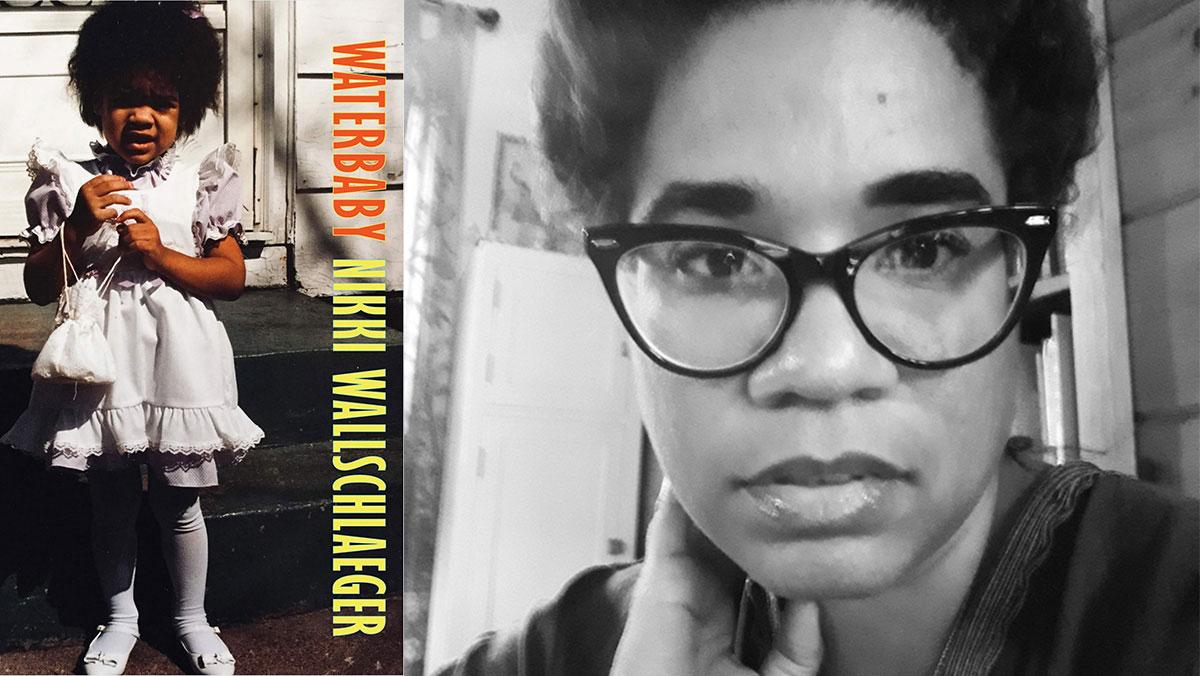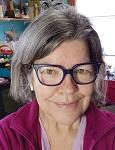Nikki Wallschlaeger’s latest poetry collection, Waterbaby, invites and resists reading. That might be frustrating, intriguing, delightful, humbling, and/or humorous, depending on your willingness to steep in these intelligent, original poems. The author of two previous poetry collections: Houses (Horse Less Press, 2015) and Crawlspace (Bloof Books, 2017), the graphic chapbook I Hate Telling You How I Really Feel (Bloof Books, 2019), and an artist book, Operation USA, she has lived in various places in Wisconsin, including Milwaukee and the Driftless region.
Wallschaeger writes in a wide range of voices and forms: dense lyrics, speculative prose poems, blues, history, the imaginary worlds of catfish, plants, and dead poets. References to water appear in every poem, intermingling with other recurring subjects, which include cleaning, labor, domesticity, motherhood, birth, slavery, racism, politics, the economy, exhaustion, and grief.
The language and events set in motion by slavery in America permeate the book: chains, middle passage, overseer, cotton, maroon, reconstruction, sugarcane, lunch counter. Like her multivalent words, grammar can’t contain the freighted meaning Wallschlaeger requires in poems such as “Middle Passage Messaging Service,” which embodies a fierce, collective resistance to decoding through sentence structure:
To this day they move
across our line break lives & before we are
archived, lungs crackle with smoke until words
form in the long struggle smuggled on impact,
a thunderstorm bites & my world is a prayer
with a moon & all the birds from way back but
my throat is a blue cache of contraband winds,
when it’s brutal please help keep our language
thriving on big mama river is the word maroon.
Wallschlaeger’s intense, complex scrutiny of language, metaphor, and poetic form is another current that runs through these poems. She invokes literary terms and forms and simultaneously empties them, as in “Prayer Sonnet” or “Anti-Elegy.” She keeps up the wordplay and double entendres through the darkest subjects: anti-elegy and Aunty Elegy; computer code and code-switching; Capitalism Hill for Capitol Hill. Or in these simultaneously funny, sad. and serious lines from “I’d Come Back from the Grave to Celebrate the End of Capitalism,” where song lyrics become sacred through her elevated description, and grave itself is a pun: “The elders have a saying, // the beat goes on: Earth’s fracturing livelihoods / resurrected by the rhythms of the night.”
Waterbaby’s impressive closing poem, “Mother of Thousands,” explores the language of plants and planting and the intersectional meanings of that language for women of color: “I’ve come here to climb the spiral rope back to the / knowledge of the land.” While “here” might mean Wisconsin, specifically the Driftless, it is also the poetic: received language, form, and literary traditions that have buried the individual stories and the collective story Wallschlaeger works to recover and reseed:
Underneath this land is a
succulent downpour we are building from the lives calling to be
excavated. The fists of Black & Brown women throughout the ages in
a controlled heirloom heat. Seeds taking flight from the ancient fields
of our wildflower palms for we are the mothers of thousands.




